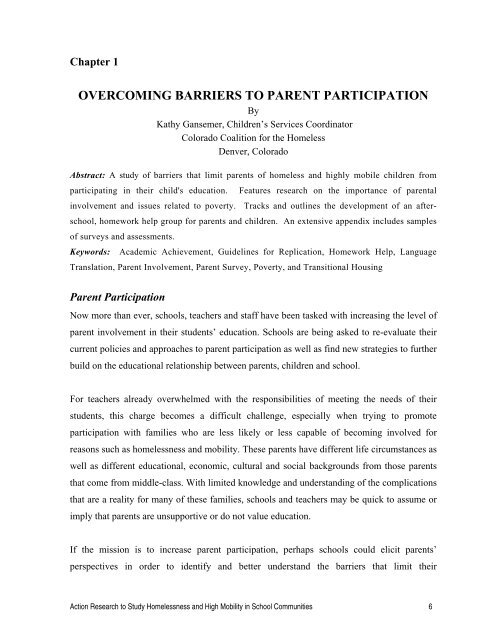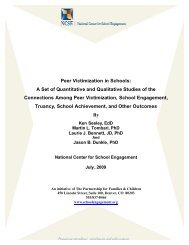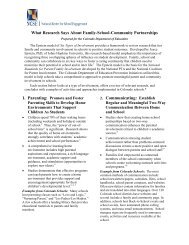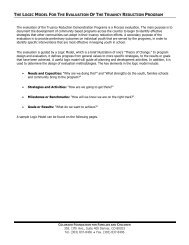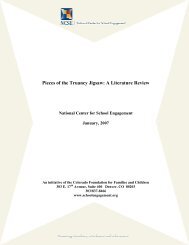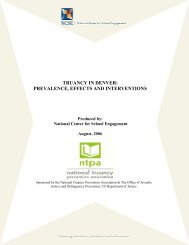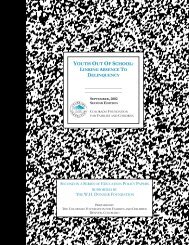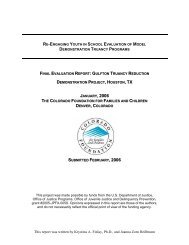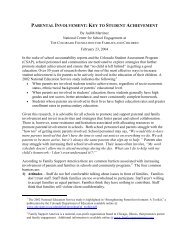Section 1: Academic Achievement - National Center for School ...
Section 1: Academic Achievement - National Center for School ...
Section 1: Academic Achievement - National Center for School ...
Create successful ePaper yourself
Turn your PDF publications into a flip-book with our unique Google optimized e-Paper software.
Chapter 1<br />
OVERCOMING BARRIERS TO PARENT PARTICIPATION<br />
By<br />
Kathy Gansemer, Children’s Services Coordinator<br />
Colorado Coalition <strong>for</strong> the Homeless<br />
Denver, Colorado<br />
Abstract: A study of barriers that limit parents of homeless and highly mobile children from<br />
participating in their child's education. Features research on the importance of parental<br />
involvement and issues related to poverty. Tracks and outlines the development of an afterschool,<br />
homework help group <strong>for</strong> parents and children. An extensive appendix includes samples<br />
of surveys and assessments.<br />
Keywords: <strong>Academic</strong> <strong>Achievement</strong>, Guidelines <strong>for</strong> Replication, Homework Help, Language<br />
Translation, Parent Involvement, Parent Survey, Poverty, and Transitional Housing<br />
Parent Participation<br />
Now more than ever, schools, teachers and staff have been tasked with increasing the level of<br />
parent involvement in their students’ education. <strong>School</strong>s are being asked to re-evaluate their<br />
current policies and approaches to parent participation as well as find new strategies to further<br />
build on the educational relationship between parents, children and school.<br />
For teachers already overwhelmed with the responsibilities of meeting the needs of their<br />
students, this charge becomes a difficult challenge, especially when trying to promote<br />
participation with families who are less likely or less capable of becoming involved <strong>for</strong><br />
reasons such as homelessness and mobility. These parents have different life circumstances as<br />
well as different educational, economic, cultural and social backgrounds from those parents<br />
that come from middle-class. With limited knowledge and understanding of the complications<br />
that are a reality <strong>for</strong> many of these families, schools and teachers may be quick to assume or<br />
imply that parents are unsupportive or do not value education.<br />
If the mission is to increase parent participation, perhaps schools could elicit parents’<br />
perspectives in order to identify and better understand the barriers that limit their<br />
Action Research to Study Homelessness and High Mobility in <strong>School</strong> Communities 6


